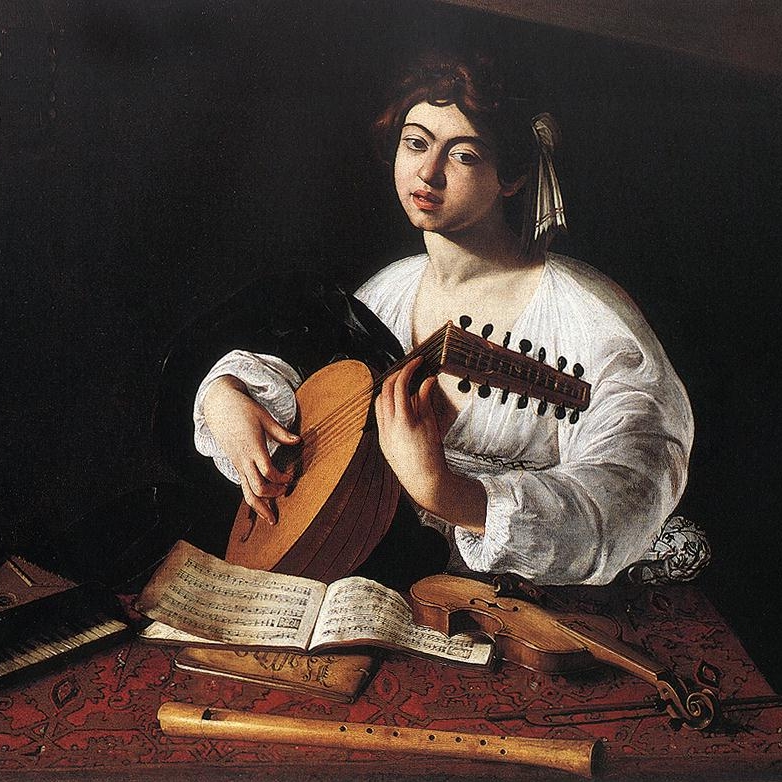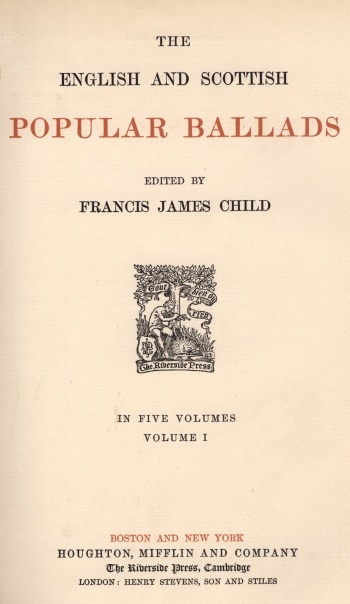Robin Hood has had a dream that he has been beaten and bound by two yeomen who have taken away his bow. He vows that he will have vengeance and sets out with Little John to find them. Robin and John shoot as they go, until they see a yeoman leaning against a tree, dressed in a horsehide, with head, tail and mane. John states that he will go ask the yeoman his intentions. Robin responds that this is forward of John, speaking so roughly to his friend that John leaves and returns to Barnsdale.
In Barnsdale John finds that the Sheriff of Nottingham has attacked Robin's band. Two have been killed, Will Scarlet is fleeing and the sheriff is in pursuit with seven score men. John shoots an arrow at the pursuers, which kills one of them, but his bow breaks and John is taken prisoner and tied to a tree.
In the meantime, Robin learns from the yeoman in the forest that he is seeking the outlaw Robin Hood, but has lost his way. Robin offers to be his guide. As they make their way through the woods, Robin proposes a shooting match. Both shoot well, but Robin so much better that the other asks his name. Gisborne tells his name, then Robin reveals his identity. They fight for two hours, with Robin being the victor. He mutilates Gisborne's face and exchanges clothing with him, then blows Gisborne's horn.
The sheriff hears the horn and assumes that Gisborne has killed Robin Hood. Thinking it is Guy he sees riding toward him, the Sheriff offers "Guy" anything he asks, but Robin, disguised as Guy, refuses a reward. Robin then rushes to Little John, unties him and gives him Gisborne's bow. The sheriff flees, but cannot outrun John's arrow, which strikes him in the heart.
An adaptation of a chapter in the fourth book of Blind Harry's Wallace, about William Wallace. Wallace's enemies have seen him leave his mistress' house. They threaten to burn her unless she tells what she knows of him, promising to marry her to a knight if she will betray Wallace. When Wallace returns, she confesses her treason to him, telling him that the house is surrounded by English soldiers. He forgives her and, disguising himself in her clothes, leaves her house. The English soldiers, attracted to this maiden they've never seen before, follow. Wallace leads them on, then turns and drawing his sword, slays all four.
Wallace then flees to the hills, where he comes across a woman doing her washing in a stream. He asks what news there is to be had and she replies that there are fifteen English soldiers at an inn nearby seeking William Wallace. He asks her for some money, promising to repay it the next time he's in the area. Wallace then comes across a beggar and asks him what news is to be had. The beggar imparts the same news as the maid by the stream, saying that the soldiers are vowing to find and kill Wallace. Wallace asks the beggar to exchange clothing with him, which the beggar does.
Dressed as a beggar, Wallace arrives at the inn and is approached by the English soldiers. They offer to pay him gold for information about Wallace's whereabouts. Wallace apparently agrees to this bargain, as no sooner do they lay their money down, does he draw his sword and kill them all.
This ballad could also be categorized as both supernatural and tragic, in that Johnie's mother seems to have a premonition about his fate should he go forth with his plans. A young man who pays no regard to the game laws, Johnie goes out hunting, despite his mother's pleas to remain home. He kills a deer and feasts on it, along with his dogs, until he falls asleep. A carle (peasant or man of low birth) comes across him and carries word to seven foresters that there is a poacher in the woods. They surround Johnie, wounding him, but he manages to kill them all. Johnie sends a bird to his mother to give her the news that he is badly injured, but by the time help arrives he has died.

Ballads were particularly characteristic of the popular poetry and song of the British Isles from the later medieval period until the 19th century. ... Read more at Wikipedia.

The Child Ballads are 305 traditional ballads from England and Scotland, and their American variants, anthologized by Francis James Child during the second half of the 19th century. ... Read more at Wikipedia.